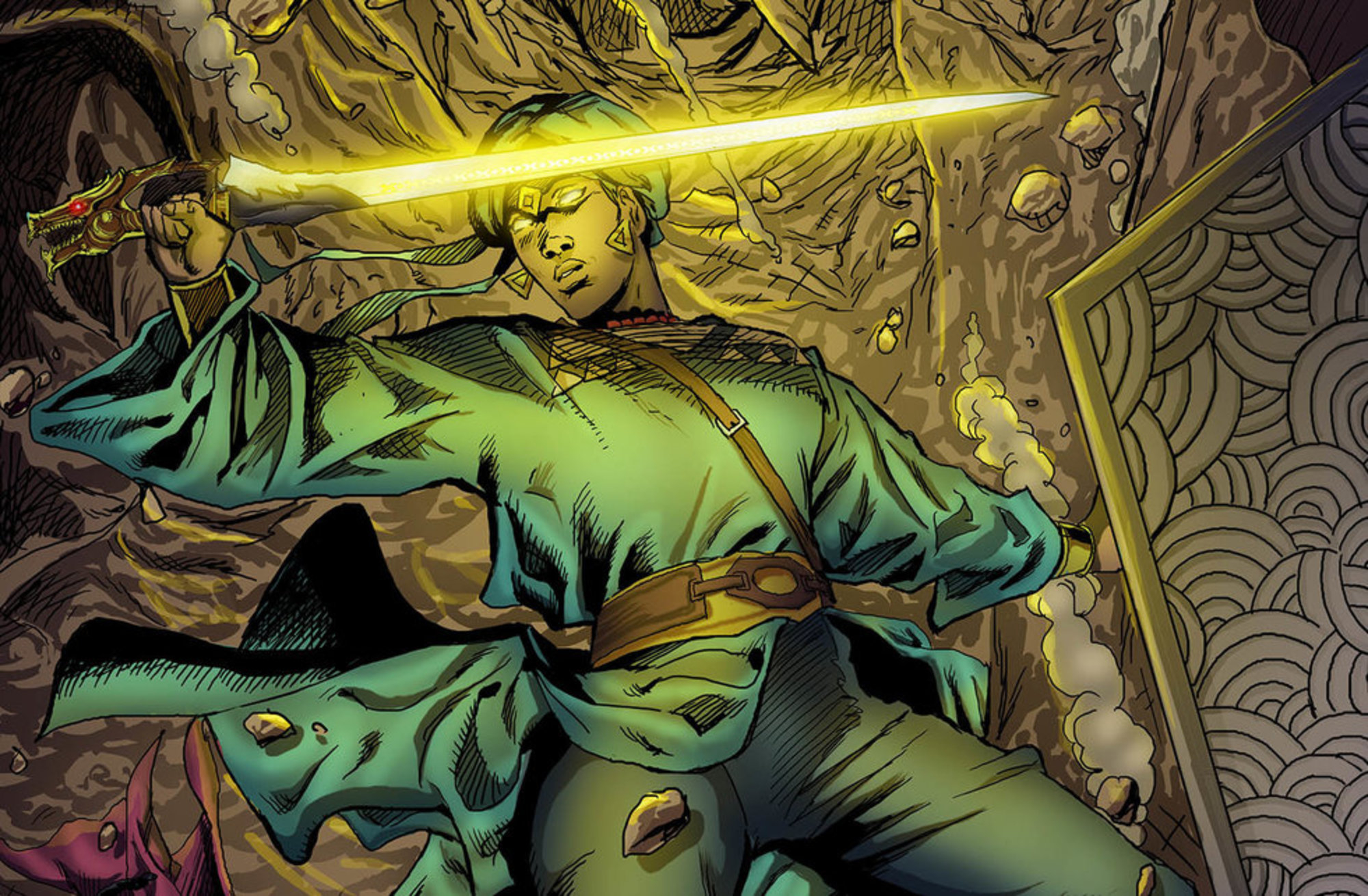The success of the film Black Panther was a sensation and also made the star of the Nigerian-American science fiction author Nnedi Okorafor rise. She writes for Marvel comic books, on which the film was based, and is working on a story-line with the elite corps of female fighters of the fictional kingdom of Wakanda in the leading role. Recently, at the Aké Arts and Book Festival in the Nigerian metropolis of Lagos, Okorafor stated: “It is really a Hollywood film, but I see it as the beginning of acceptance of black heroes. And a very good start. There is now great worldwide interest. Let's seize that opportunity as African artists.”
The crowded room, with many young people, embraces her as a superstar. With her successful fantasy novels Who Fears Death (2010) and Binti (2015) she gave a big boost to the popularity of the genre, both in the USA where she lives and among African readers and movie viewers. With Black Panther the craze has gained momentum.
'Seeing black heroes is good'
Sitting on the stage next to her, Nigerian cartoon filmmaker Roye Okupe says: "Wakanda is great. But I would rather see it situated in Lagos or Nairobi or Cape Town. Seeing black heroes is good for African children who grow up. Now they see far too many American superhero films, to escape from reality and longing for a happy ending.”
The filmmaker Kolawole Olanrewaju returned from the US a few years ago, with the purpose of making good science fiction films in Nigeria: the trailer of his computer-animated cartoon about the Nigerian god and legendary superhero Sango looks beautiful. “Black Panther paved the way for black characters, who were always only victims. It’s a landslide, but we still missed something. It remains essentially a Western film. We have embraced Western culture and much of our own tradition has been lost. With our own film we want to tell an African story to the whole world.”
Nnedi Okorafor raises her voice: “Why or-or? We can get it both. Marvel has made it acceptable for white parents to have their children watch black movie heroes. That is the power of Hollywood. Not that I want to make my work enjoyable for a white audience, I refuse that. But I know the system, I know how I can find my own way.”
"Is it an advantage that I live in the US? No! I have to fight for every idea that I want to work on, like all black writers. Publishers do not want you. In my first novel, I was told that science-fiction literature with black characters really would not sell. I was lucky, I happened to run into a good publisher.”
Roye Okupe: “I once tried to sell a story idea with a black superhero in Hollywood. The first thing the producer said: you have to change the skin colour of your hero.”
After the blockbuster
After the success of Black Panther, the blockbuster, it all changed: all of a sudden there is a demand for scripts with black characters, preferably written by black authors, all three panellists say. And the science fiction writer and ICT specialist Tochi Onyebuchi agrees: he wrote seven science fiction novels from a black perspective for which he could not find any publisher ('I just love writing very much') but at the eighth try it was bingo. The Nigerian author lives in the US. In a double-interview with Okorafor at Aké Onyebuchi says: “I am nervous that I am here just next to Nnedi, who means so much to me and other African science fiction writers.”
In the panel on Black Panther, journalist and moderator Oris Aigbokhaevbolo asks some thorny questions: is the film not some sort of hobby of Africans living in the West? Is all that talk about Afrofuturism not an expression of escapism? How does the 'ordinary African who lives on the continent' benefit?
Roye Okupe: “I see the film mainly as an exercise in 'what if ': what could have happened if Africa had not been colonized, if there had not been slave trade? It’s an inspiring thought, you do not have to be rich to imagine. I looked at Wakanda, so technologically advanced, and thought: this is what we can achieve."
'A party of the upperclass'
Nnedi Okorafor: “I agree with everything that Oris just said. It is also a party of the upperclass in the diaspora. The characters in the film are rich, of royal blood and the viewpoint of the oppressed and poor is not discussed at all.”
Roye Okupe: “Many African Americans identify with the villain Killmonger and not with the good guy T'Challa.”
Okorafor: “But not all Afrofuturism is elitist. In my novel Binti, a girl from the Himba, a people in Namibia, plays the main role: how she breaks away from her environment and attends the best university in the universe.”
The famous daughter of Nigeria is happy to be back home for a few days. Discussing in Lagos is so much easier, she says. Because she may have much envied success in the US, at the end it is a daily struggle. “I worked on the script of a TV movie: I really had to explain everything. With Marvel's illustrators for the Black Panther strips it’s just like that: even about the hair styles, they know nothing."
This blog was published in Dutch on 8 November, 2018 at the Afrikablog on the site of the Dutch daily newspaper de Volkskrant.


